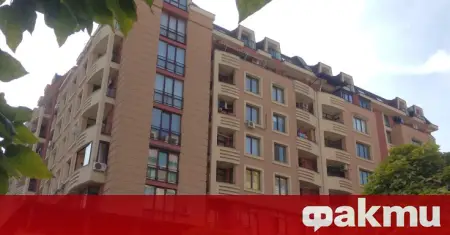Andrei Korobeinik, member of the Riigikogu
Estonia’s economy has been in continuous decline for two years, which is taking place against the background of economic growth in other European Union countries. In the globalized world, where national economies are closely connected, Estonia’s situation seems paradoxical: our economy is declining, while our neighbors are showing growth. It can be called Estonia’s “economic miracle”, only in the opposite sense. Prime Minister Kaja Kallas has found dozens of reasons to explain our economic problems, although the main reason is obvious – it is Kaja Kallas who has led our country for the past two years.
The reasons for economic failures are clear
Kallas’ electoral victory in the spring elections was impressive, but in a short time he has lost all his political capital. If earlier criticism of the Prime Minister came only from the parliamentary opposition, now coalition partners and even part of the Reform Party, as well as the majority of Estonian residents, have joined the criticism. Today, Estonia is ruled by a political corpse, and this situation is completely abnormal. It is not possible (nor necessary) to save Kallas’ political career, but urgent measures are needed to save the Estonian economy. The crisis is getting worse and there are no easy solutions to overcome it.
The reasons for Estonia’s economic failures are clear: the government did not provide enough support to local businesses during last year’s energy crisis, when electricity prices multiplied. This led to an increase in production costs, and as a result, the prices of local companies’ products increased. In the end, this led to record inflation and the loss of export markets in Estonia – Estonian companies could not compete with those that received state support in other countries. Even in the Estonian market, the prices of local producers have become too high, which is why we see more and more foreign goods in stores. If the demand for local production falls, the only option left for companies is to close production and lay off workers. Today, we regularly hear about business closings and jobs being moved overseas, but closing factories and businesses has long-term consequences. It is not possible to simply restart production in a year or two, by which time the company will have neither employees nor customers. The current crisis is different from the 2008 crisis: it is developing slowly, but its consequences are more long-term and deeper.
The current Estonian government is not involved in the development of a plan for exiting the crisis and does not involve experts for this purpose. Instead, the Reform Party directs significant funds from the state budget to support the rich sections of the population, including members of the Riigikogu, ministers and high-ranking officials. The rich get richer, the poor get poorer. In addition, to cover its costs, the government raises VAT, which in turn accelerates inflation and deepens inequality in society.
The resignation of Kaja Kallas is the first step
Serious steps are needed to stabilize the economy, including giving up tax breaks for the rich, which would free up significant funds in the state budget and allow avoiding the planned tax increase. But the damage caused in the last six months is huge, the budget deficit reaches one billion euros. The situation calls for comprehensive tax reforms – but the search for money should not come from the pockets of the country’s poorest residents, but from where the money is. Among the possible options – taxes on business premises and luxury real estate, expensive cars, huge profits of banks.
In order to restart the economy, we need to start big investments in infrastructure construction projects already next year – precisely those investments that the Reform Party has practically completely excluded from the state budget. This includes the Via Baltica highway, the railway to Haapsallu, Tallinn Central Hospital and much more. Yes, you may need loans for this, but you should not be afraid of it. Every euro spent during the crisis mitigates the recession and helps us get out of the protracted recession. Along with urgent solutions, it is also necessary to present a long-term plan, which is exactly what the political party Eesti 200 has been talking about for years. But talking is not enough, actions are necessary. First of all, the country’s energy security issues should be systematically approached – unfortunately, last year’s energy crisis will not be the last. In order to reduce the price of electricity, we need additional connections with Scandinavia, the development of oil shale energy, a specific position regarding the nuclear power plant.
In summary: with the current prime minister, overcoming the crisis seems impossible. Estonia needs a new leadership that can take effective measures to restore the Estonian economy. Every day that Kaja Kalla spends in the position of prime minister damages the country’s economy and destroys the well-being of our people. The resignation of Kaja Kallas will be the first step on the way to reviving the Estonian economy.

